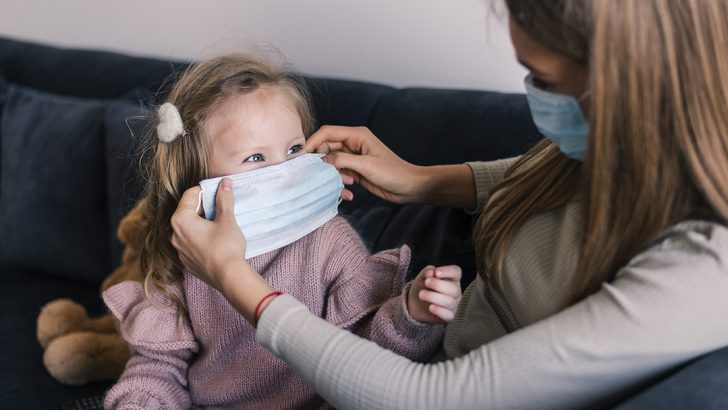My two-year-old has now spent most of her life under coronavirus restrictions. Of course, she doesn’t understand the bigger picture, but she does know that, at times, the Government stops the older children from going to school and her from going to her beloved childminder. She knows that sometimes we are not allowed go to the beach. She knows that we are often not allowed to visit our friends and family. Such restrictions on our basic rights were considered unthinkable until just last year, yet they now have become normalised as a backdrop to children’s lives in Ireland, and around the world.
The older children understand the rationale for the restrictions, and that their purpose is to prevent the transmissions of coronavirus, and so to save people’s lives and their health. While most of the Government’s restrictions have seem perfectly reasonable, some have been clearly unnecessary and even counterproductive. That much is obvious to small children.
We live in a rural area, but near a large town. A few weeks ago, we were driving past the local town park, which was thronged with people, thanks to the government’s 5km travel limit which prevented all these townsfolk from dispersing safely into the nearby woodlands and beaches, which lay empty. The illogic of this struck my ten-year-old daughter, who said, “why is the Government making people crowd together, if crowding together makes the virus spread?”
We really had no answer for this, except to say that the Government makes mistakes sometimes. The Government appears to have belatedly accepted that the 5km rule was unnecessary, having now abandoned it.
Yet illogical positions remain in the government’s latest iteration of the rules. We have now been told that we are allowed to meet another household for social reasons – but only in public places, such as streets and parks, which are invariably crowded. Therefore, we may meet with the children’s friends in the local skatepark, which is a quarter acre at most, and usually has at least 100 people in it, all in close proximity. Yet we may not meet friends in our 2-acre garden, where there would be nobody but ourselves and we could safely socially distance.
Last autumn, the Government allowed hairdressers to operate in small shops, in close contact with clients, while keeping cavernous churches closed to public worship, even though social distancing is obviously achievable in large buildings. This was so, even though there is no constitutional or human right to getting your hair done, but there are important rights to practice religion.
There are also constitutional and human rights to family life. It is widely accepted that people can meet safety outdoors if they observe social distancing. This fact alone means that it is not necessary – and therefore not lawful, in my view – to curtail such fundamental rights and prevent people meeting close family members in their gardens.
Children are curious and questioning. Yet it is often impossible to explain the logic of some of the Government’s restrictions to them, since there is no inherent logic there to explain. When rules are made which even a child can see are irrational, many people simply refuse to obey them. Sadly, they then also begin to disobey those rules which really do help stop the spread of covid. It seems to me that the Government has shot itself in the foot by failing to properly balance people’s rights and rationally assessing which restrictions really are necessary to stop the spread of the disease and so save lives.
As children grow up, they form elementary understandings of the relationship between the State and its citizens. The experience of growing up during Covid may well alter how today’s children will come to see their relationship with the State. Will they see it as normal for the State to intervene and restrict people’s basic rights, or will they react and become more suspicious of authority? Will they, as adults, redraw the lines as to what restrictions on rights are acceptable to secure public safety? After all, a generation which, as impressionable children, experienced the State confine them to their homes and gardens, and saw it deprive them of their right to education, to travel and to meet friends and family, will no doubt carry that experience with them into adulthood.


 Rory Fitzgerald
Rory Fitzgerald
